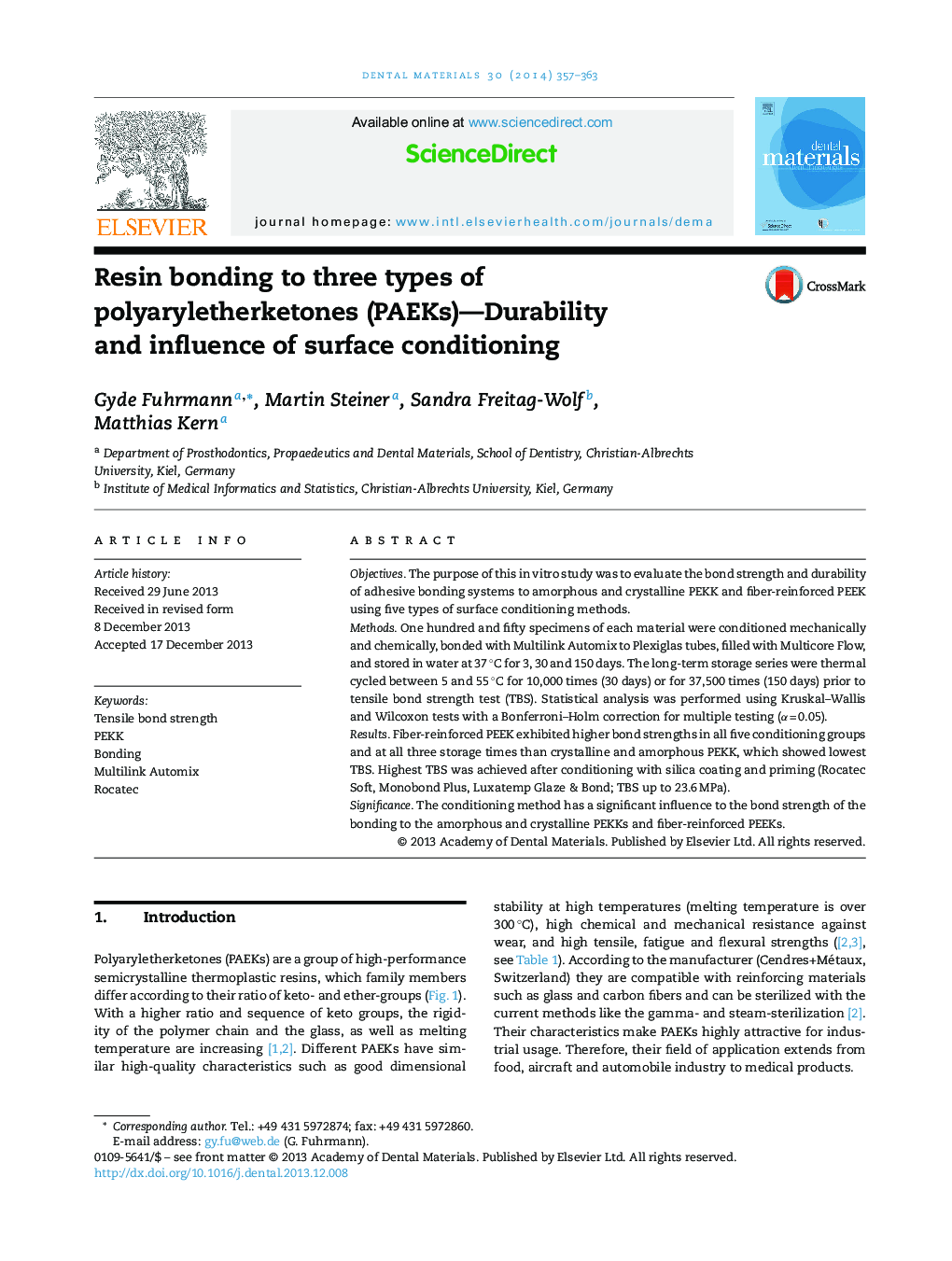| Article ID | Journal | Published Year | Pages | File Type |
|---|---|---|---|---|
| 1421068 | Dental Materials | 2014 | 7 Pages |
ObjectivesThe purpose of this in vitro study was to evaluate the bond strength and durability of adhesive bonding systems to amorphous and crystalline PEKK and fiber-reinforced PEEK using five types of surface conditioning methods.MethodsOne hundred and fifty specimens of each material were conditioned mechanically and chemically, bonded with Multilink Automix to Plexiglas tubes, filled with Multicore Flow, and stored in water at 37 °C for 3, 30 and 150 days. The long-term storage series were thermal cycled between 5 and 55 °C for 10,000 times (30 days) or for 37,500 times (150 days) prior to tensile bond strength test (TBS). Statistical analysis was performed using Kruskal–Wallis and Wilcoxon tests with a Bonferroni–Holm correction for multiple testing (α = 0.05).ResultsFiber-reinforced PEEK exhibited higher bond strengths in all five conditioning groups and at all three storage times than crystalline and amorphous PEKK, which showed lowest TBS. Highest TBS was achieved after conditioning with silica coating and priming (Rocatec Soft, Monobond Plus, Luxatemp Glaze & Bond; TBS up to 23.6 MPa).SignificanceThe conditioning method has a significant influence to the bond strength of the bonding to the amorphous and crystalline PEKKs and fiber-reinforced PEEKs.
